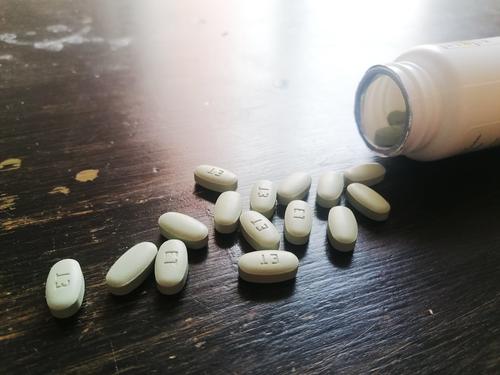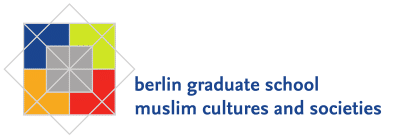PrEPped Intimacies in / from Berlin
***versión en español abajo***
This research project explores how PrEP (Pre-Exposure Prophylaxis), a medication that prevents HIV infection, is reshaping lives, relationships, and ideas about sexuality. It examines the hopes and concerns people attach to the drug, especially in communities historically affected by HIV/AIDS. Through ethnographic fieldwork in Germany and Colombia, it asks how PrEP is experienced locally—and how it circulates globally—through public health, queer art, and activism.
Since the early days of the HIV/AIDS epidemic, prevention has focused largely on behavioral change, particularly condom use. With PrEP, people now have a biomedical option to protect themselves. But its introduction raises new questions. Who has access to PrEP? How does it shift attitudes toward sex? And what new debates emerge around pleasure, risk, or responsibility?
The first part of the project, ‘PrEPped Intimacies in Berlin' (04/2022-06/2024), looked at how PrEP shapes everyday life for queer communities in the city. It aimed to understand how the medication is talked about, felt, and used—in clinics, in conversations, and in intimate encounters. It also explored how people relate to the history of HIV/AIDS—through memory, silence, or generational difference. It shows how PrEP is more than just a pill: it becomes part of how people imagine health, desire, and connection.
The second part, ‘PrEPped Intimacies from Berlin’ (07/2024-06/2026), takes a transnational perspective. It follows how ideas, drugs, and people move between Berlin and Colombia. By tracing these transnational connections, the project highlights both solidarities and inequalities—and works to challenge dominant Global North perspectives on HIV prevention. It asks what PrEP means in different places—and what frictions arise when a global prevention strategy meets local realities.
Taken together, the project offers insights into the promises and challenges of HIV prevention today. At the same time, it contributes to Queer Anthropology and Critical Medical Anthropology by showing how medicine, sexuality, and everyday life are deeply intertwined.
Funding: German Research Foundation
Principal investigator: Prof. Dr. Hansjörg Dilger
Research Associate: Max Schnepf
Research Assistant: Benjamín Kuhn Weber
Duration: April 2022 - June 2026
Intimidades PrEP en / desde Berlín
Este proyecto de investigación explora cómo la PrEP (profilaxis preexposición), un medicamento que previene la infección por el VIH, está transformando vidas, relaciones e ideas sobre la sexualidad. Examina las esperanzas y preocupaciones que las personas asocian al fármaco, especialmente en comunidades históricamente afectadas por el VIH/SIDA. A través de trabajo de campo etnográfico en Alemania y Colombia, se pregunta cómo se experimenta la PrEP a nivel local—y cómo circula a nivel mundial—a través de la salud pública, el arte queer y el activismo.
Desde los inicios de la epidemia del VIH/SIDA, la prevención se ha centrado en gran medida en el cambio de comportamiento, en particular en el uso del preservativo. Con la PrEP, las personas disponen ahora de una opción biomédica para protegerse. Pero su introducción plantea nuevas preguntas. ¿Quién tiene acceso a la PrEP? ¿Cómo cambia las actitudes hacia el sexo? ¿Y qué nuevos debates surgen en torno al placer, el riesgo o la responsabilidad?
La primera parte del proyecto, “Intimidades PrEP en Berlín” (04/2022-06/2024), analizó cómo la PrEP da forma a la vida cotidiana de las comunidades queer de la ciudad. Examinó cómo se habla, se percibe y se utiliza la medicación en las clínicas, en las conversaciones y en los encuentros íntimos. También exploró cómo se relacionan las personas con la historia del VIH/SIDA, a través de la memoria, el silencio o la diferencia generacional. Mostró cómo la PrEP es más que una simple pastilla: se convierte en parte de cómo las personas imaginan la salud, el deseo y la conexión.
La segunda parte, “Intimidades PrEP desde Berlín” (07/2024-06/2026), adopta una perspectiva transnacional. Sigue cómo las ideas, las drogas y las personas se mueven entre Berlín y Colombia. Al rastrear estas conexiones transnacionales, el proyecto resalta tanto las solidaridades como las desigualdades, y busca desafiar las perspectivas dominantes del Norte Global sobre la prevención del VIH. Se pregunta qué significa la PrEP en diferentes lugares—qué fricciones surgen cuando una estrategia de prevención global se enfrenta a las realidades locales.
En conjunto, el proyecto ofrece una visión de las promesas y los retos de la prevención del VIH en la actualidad. Al mismo tiempo, contribuye a la Antropología Queer y la Antropología Médica Crítica al mostrar cómo la medicina, la sexualidad y la vida cotidiana están profundamente entrelazadas.



